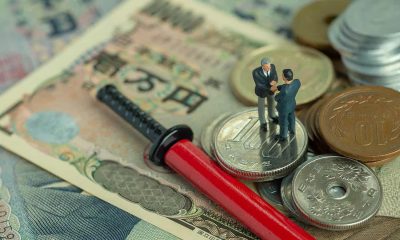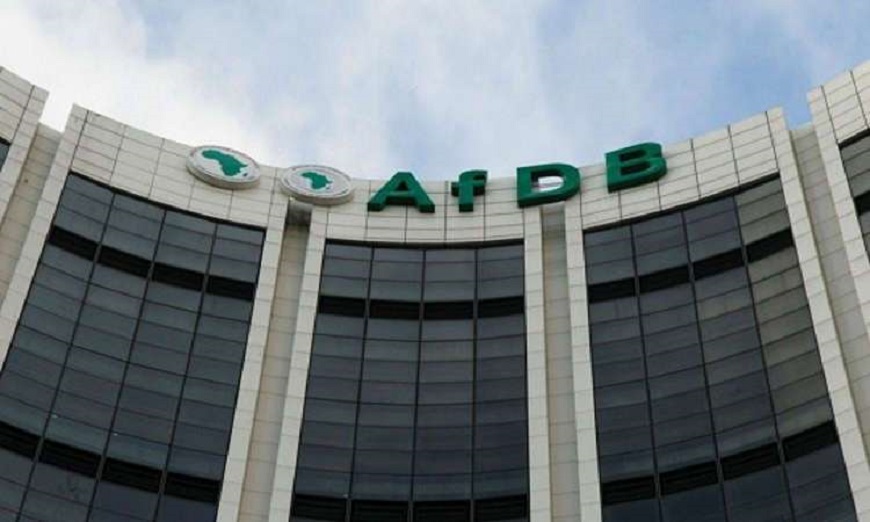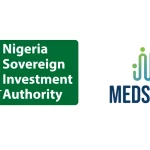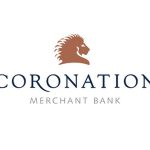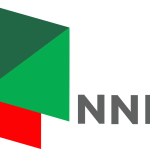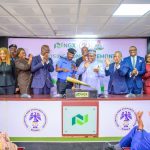Economy
AfDB to Raise Africa’s Overall GDP to $5.6tr by 2025
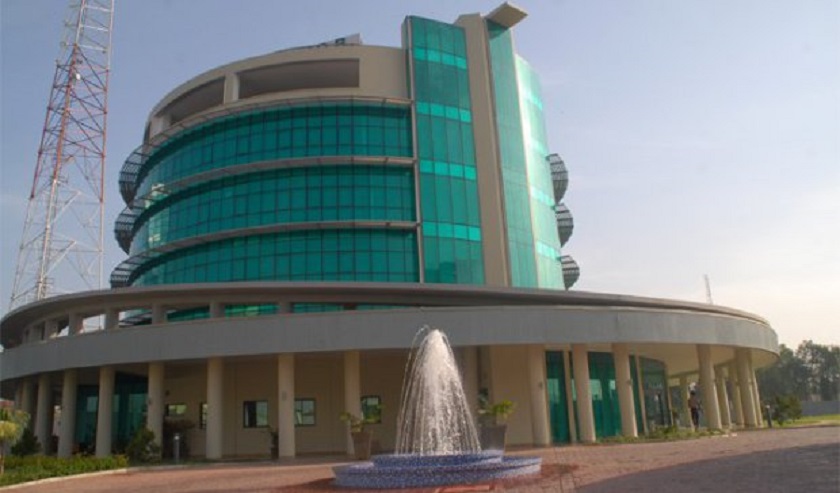
By Dipo Olowookere
The African Development Bank (AfDB) has revealed plans to boost the continent’s industrial Gross Domestic Product (GDP) by 130 percent by 2025 and drive its overall GDP from $2.3 trillion to $5.6 trillion.
This was made known in its latest reported titled Industrialise Africa and obtained by Business Post on Sunday.
In the report, the continent’s lender said of the eight African nations profiled, South Africa had the highest industrial GDP with Nigeria the lowest.
South Africa has 44.8 percent, Egypt 30.1 percent, Cote d’Ivoire 29 percent, Kenya 23.3 percent, Ghana 21 percent, Ethiopia 21 percent, Cameroon 17.9 percent and Nigeria 13.1 percent.
AfDB, in the report, said it plans to industrialise Africa by placing a stronger focus on areas where it can best leverage its experience, capacities and its finances to support countries through six ‘Flagship Programs’, which are at the core of the Bank’s Industrialise Africa priority.
It explained that to deliver its contribution to these programs, the Bank will significantly increase its level of funding over the next decade by fostering successful industrial policies, attracting and channelling funding into infrastructure and industry projects, and growing liquid and effective capital markets.
Also, the bank said it plans to promote and drive enterprise development, promote strategic partnerships in Africa, and develop efficient industry clusters cross the continent.
The lender further stated in the report that it hopes to help Africa move from agriculture to agro-industries, from raw natural resource exports to high-value semi-processed or processed exports and, hence, to curb high unemployment rates and lay the groundwork for greater diversification of economies.
It noted that this industrial revolution must be underpinned by technological progress, reallocation of new investments into high-return emerging markets and by offering Africa opportunities to leapfrog over its development gap.
Stakeholders acting on the industrialisation agenda of the continent estimate that structural transformation requires industrial GDP to grow by an average of 11.5% per year (corresponding to a cumulative growth of 130% by 2025), while GDP per capita growth would have to almost double to 4% per annum.
The experience of other industrialising economies would seem to indicate that Africa can realistically achieve these objectives by increasing industrial GDP in the next 10 years from $751 billion to $1.72 trillion within the next decade. This would raise continental GDP to $5.62 trillion and African GDP per capita to $3 368 by 2025.
“For this to happen, there is a need for a comprehensive and resolute continental industrial policy that is country-adjustable to local contexts and that can be aligned with the country’s development goals.
“This will require vision and commitment from political leaders but also from the African Development Bank and the broader development community called upon to provide support through technical assistance, capacity building, continuous dialogue and advisory services,” the report said.
Lessons from the experiences of the African Development Bank, UNIDO, UNECA and other development organisations highlight five key enablers that have been common to almost all countries that have rapidly industrialised their economies.
In successful industrialising countries, these enablers have typically been integrated into a comprehensive industrial policy that has enabled businesses, both large and small, to develop along the value chains of selected, high-potential industrial sectors.
Economy
Police, Capital Market Regulators Partner for Nigeria’s Economic Growth
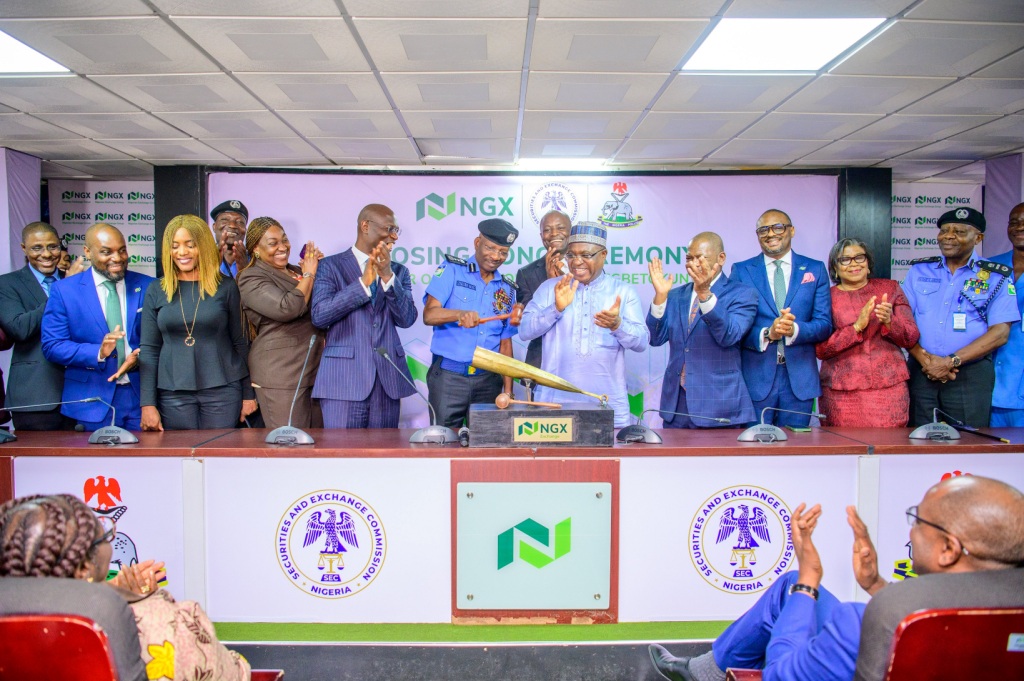
By Aduragbemi Omiyale
The Nigeria Police Force (NPF) has promised to work with the Securities and Exchange Commission (SEC) and the Nigerian Exchange (NGX) Group Plc for the prevention of financial crime, and the reinforcement of trust and confidence in Nigeria’s capital market.
The Inspector General of Police, Mr Kayode Egbetokun, gave this assurance on Wednesday at the closing gong ceremony in his honour at the NGX in Lagos.
The police chief said, “A transparent and well-regulated capital market is vital to Nigeria’s economic growth. The Nigeria Police Force remains committed to working with regulators and market operators to prevent financial crime, protect investors, and uphold the integrity of our financial system.”
Earlier in his welcome address, the chairman of NGX Group, Mr Umaru Kwairanga, commended the leadership of the police in supporting market integrity.
“Market integrity is a shared responsibility. By honouring the Inspector-General of Police, we are reinforcing the importance of institutional alignment in protecting investors and preserving trust in our financial system.
“Strong collaboration between regulators, enforcement agencies, and market infrastructure institutions is essential to building a resilient and credible market that supports economic growth,” he stated.
The Director-General of SEC, Mr Emomotimi Agama, while speaking, emphasized the importance of coordinated enforcement, noting: “Investor protection is at the core of market regulation, and today’s engagement highlights how critical collaboration with law enforcement is to achieving that mandate. This partnership strengthens our enforcement capacity, enhances deterrence against illegal investment activities, and reinforces confidence in the Nigerian capital market.”
As for the chairman of NGX Limited, Mr Ahonsi Unuigbe, “A transparent and orderly market can only thrive where rules are respected and misconduct is addressed decisively. The presence of the Nigeria Police Force in this collective effort sends a strong signal that safeguarding the market is a national priority.”
Similarly, the chief executive of NGX Group, Mr Temi Popoola, stressed the importance of aligning innovation with oversight, pointing out that, “Technology and market growth must be supported by strong enforcement and investor protection frameworks. Our collaboration with the SEC and the Nigeria Police Force reflects a unified approach to preserving the credibility of Nigeria’s capital market.”
Economy
NASD OTC Exchange Closes Green by 0.09%

By Adedapo Adesanya
The NASD Over-the-Counter (OTC) Securities Exchange rallied by 0.09 per cent on Wednesday, February 4, amid renewed appetite for unlisted stocks.
This lifted the NASD Unlisted Security Index (NSI) by 3.18 points to 3,641.30 points from the previous session’s 3,641.30 points and raised the market capitalisation by N1.9 billion to N2.180 trillion from the N2.178 trillion quoted on Tuesday.
The bourse recorded three price gainers and four price losers at the midweek session.
The advancers were led by Air Liquide Plc, which went up by N2.04 rise to end at N22.53 per share versus the previous session’s N20.49 per share, Central Securities Clearing System (CSCS) added 97 Kobo to sell at N44.97 per unit versus N44.00 per unit, and Acorn Petroleum Plc appreciated by 2 Kobo to N1.37 per share from N1.35 per share.
On the flip side, Geo-Fluids Plc lost 55 Kobo to sell at N6.26 per unit versus N6.81 per unit, Nipco Plc depreciated by 48 Kobo to trade at N259.00 per share versus N259.48 per share, FrieslandCampina Wamco Nigeria Plc declined by 40 Kobo to N63.10 per unit from N63.50 per unit, and Industrial and General Insurance (IGI) depleted by 1 Kobo to 65 Kobo per share from 66 Kobo per share.
Yesterday, the volume of trades slid by 64.5 per cent to 2.5 million units from 7.0 million units, the value of transaction decreased by 53.2 per cent to N17.7 million from N37.9 million, and the number of deals went down by 47.1 per cent to 18 deals from 34 deals.
CSCS Plc remained the most traded stock by value on a year-to-date basis with 16.0 million units valued at N652.6 million, followed by FrieslandCampina Wamco Nigeria Plc with 1.7 million units exchanged for N111.2 million, and Geo-Fluids Plc with 11.7 million units traded for N76.1 million.
CSCS Plc was also the most active stock by volume on a year-to-date basis with 16.0 million units sold for N652.6 million, trailed by Mass Telecom Innovation Plc with 13.3 million units worth N5.3 million, and Geo-Fluids Plc with 11.7 million units valued at N76.1 million.
Economy
Naira Rallies to N1,358/$1 at Official Market, N1,450/$1 at Parallel Market
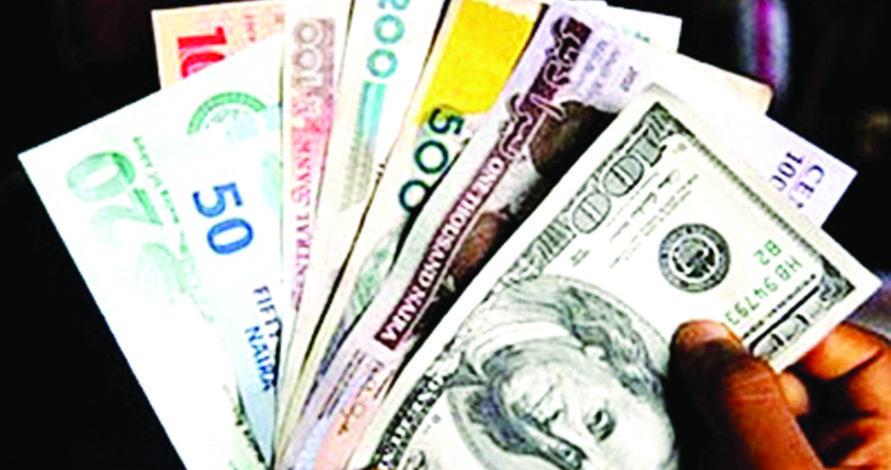
By Adedapo Adesanya
The Naira rallied at the different segments of the foreign exchange (FX) market on Wednesday as supply continues to outweigh demand, giving it an edge against the United States Dollar.
In the parallel market, the Nigerian Naira improved its value on the greenback yesterday by N5 to quote at N1,450/$1 compared with the previous day’s N1,455/$1, and at the GTBank FX desk, it gained N3 to trade at N1,383/$1, in contrast to Tuesday’s exchange rate of N1,386/$1.
In the the Nigerian Autonomous Foreign Exchange Market (NAFEX), which is also the official market, the Naira firmed up against the Dollar at midweek by N14.63 or 1.1 per cent to settle at N1,358.28/$1 versus the preceding session’s N1,372.91/$1.
Against the Pound Sterling, the domestic currency appreciated on Wednesday by N14.16 to N1,863.43/£1 from the previous day’s N1,877.59/£1, and gained N13.73 on the Euro to end at N1,606.03/€1 versus the N1,619.76/€1 it was exchanged a day earlier.
The strengthening of the Naira value has been driven by the injection of forex into the financial markets by foreign investors seeking attractive investments in the emerging markets, helping to boost Nigeria’s external reserves, which provide the Central Bank of Nigeria (CBN) with the capacity to support the local currency.
As of February 4, 2026, the reserves reached $46.59 billion.
The local currency has been able to find a solid path despite no indications of any intervention from the apex bank in recent week, strengthening the case of price discovery.
Policy moves by the CBN is also offering a backbone for the FX market as it considers some strategic reforms through a policy known as the Single Regulatory Window.
In its 2025 Fintech Report, the central bank said this scheme will significantly reduce time-to-market for new digital financial products by streamlining licensing and supervisory processes across multiple agencies.
Meanwhile, the cryptocurrency market was in red amid a broad sell-off in global technology stocks, with reports showing that liquidity was notably thin, amplifying price moves and contributing to forced liquidations. The decline followed a sharp sell-off in global technology stocks overnight, where concerns over the pace of artificial intelligence adoption and rising capital spending by major firms weighed heavily on valuations.
Bitcoin (BTC) lost 7.9 per cent to sell at $70,534.94, Ripple (XRP) declined by 11.2 per cent to $1.42, Binance Coin (BNB) slumped by 9.4 per cent to $689.70, Ethereum (ETH) crashed by 8.9 per cent to $2,072.46, and Solana (SOL) dipped by 8.7 per cent to $89.86.
In addition, Dogecoin (DOGE) depreciated by 6.9 per cent to $0.1008, Cardano (ADA) slipped by 6.8 per cent to $0.2792, Litecoin (LTC) dropped 5.1 per cent to trade at $57.56, and US Dollar Tether (USDT) went down by 0.1 per cent to $0.9980, while the US Dollar Coin (USDC) closed flat at $1.00.
-

 Feature/OPED6 years ago
Feature/OPED6 years agoDavos was Different this year
-
Travel/Tourism9 years ago
Lagos Seals Western Lodge Hotel In Ikorodu
-

 Showbiz3 years ago
Showbiz3 years agoEstranged Lover Releases Videos of Empress Njamah Bathing
-

 Banking8 years ago
Banking8 years agoSort Codes of GTBank Branches in Nigeria
-

 Economy3 years ago
Economy3 years agoSubsidy Removal: CNG at N130 Per Litre Cheaper Than Petrol—IPMAN
-

 Banking3 years ago
Banking3 years agoSort Codes of UBA Branches in Nigeria
-

 Banking3 years ago
Banking3 years agoFirst Bank Announces Planned Downtime
-

 Sports3 years ago
Sports3 years agoHighest Paid Nigerian Footballer – How Much Do Nigerian Footballers Earn


